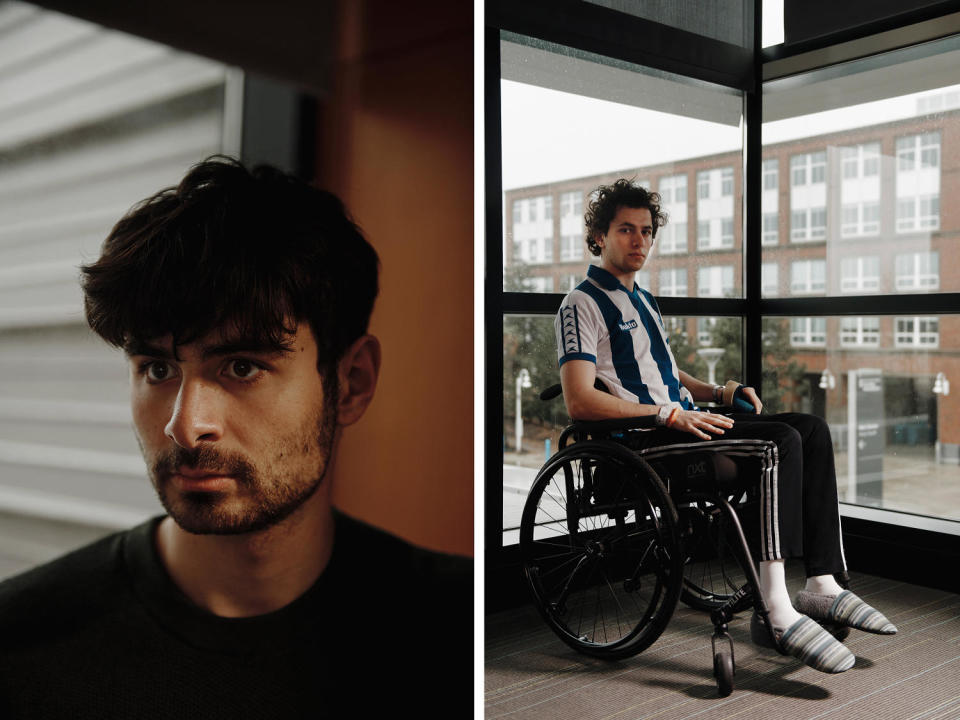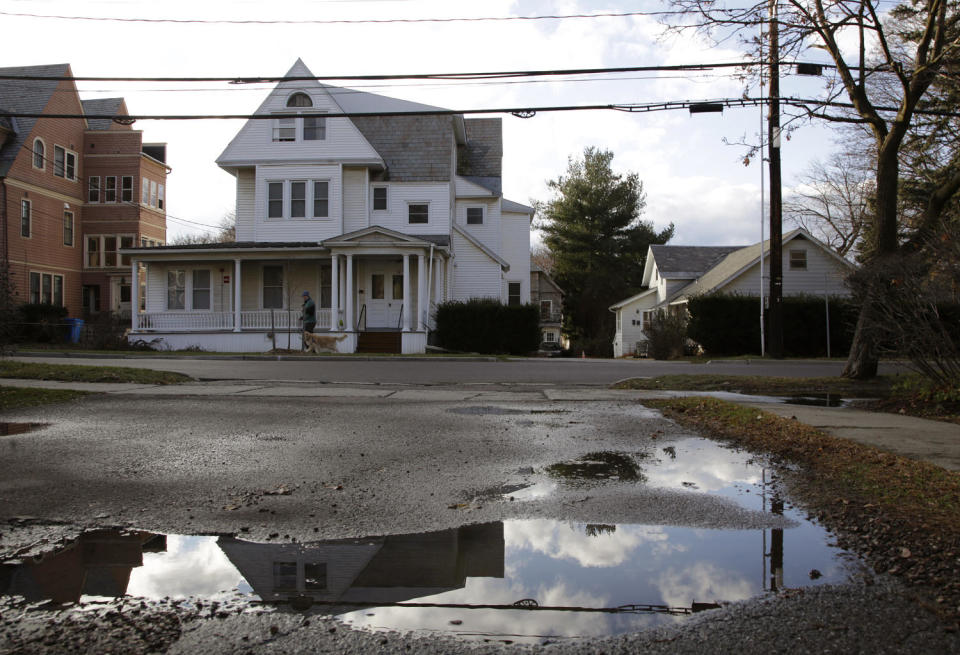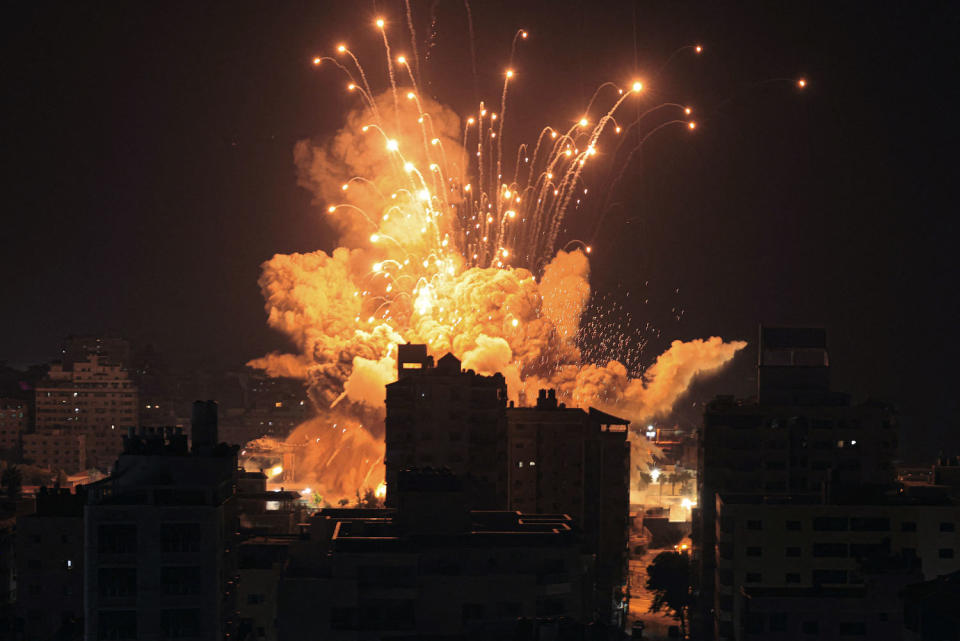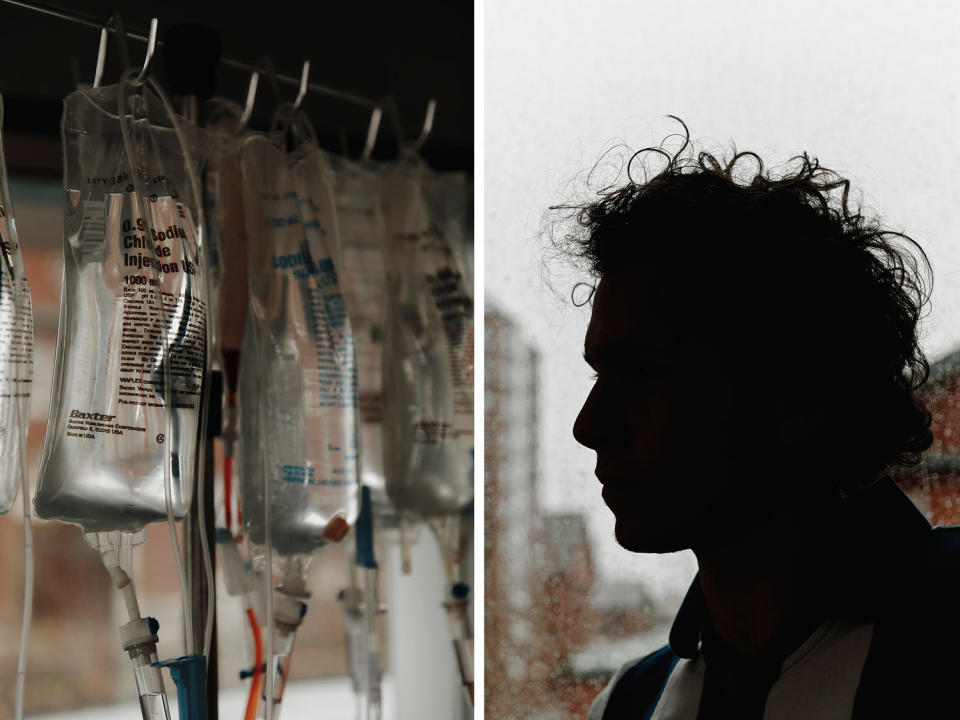Palestinian students shot in Vermont say suspect waited for and targeted them
CHARLESTOWN, Mass. — It took Hisham Awartani some time to realize he'd been shot after falling to the ground during a walk near his grandmother's house with two friends, Kinnan Abdalhamid and Tahseen Ali Ahmad.
"I didn’t quite process the fact until I, like, looked at my phone and I saw my phone had blood on it," said Awartani, who along with Abdalhamid, spoke exclusively with NBC News about that night. "I was like, 'Oh, I’ve been shot.'"
But having grown up in the Israeli-occupied West Bank, where Palestinians often face violence and aggression, it came as no surprise to the 20-year-old U.S. students that something like this would happen to them.
"It’s odd because it happened in Burlington, Vermont. It’s not odd because it happened, full stop," Awartani said about the Nov. 25 shooting. "In the West Bank growing up, it’s just something that’s normal. Like, so many unarmed young men getting shot by the Israeli army, and they’re just left to bleed out."
"Therefore, when it happened to me, it was like, 'Oh, this is where it happens. This is it,'" he said.
The friends, who have described themselves as family, sat down with NBC News in a conference room at the Spaulding Rehabilitation Hospital in Charlestown, Massachusetts, where Awartani is receiving treatment. Awartani sat in his wheelchair. Abdalhamid next to him in a chair.

A walk around the block ends in tragedy
Awartani, Abdalhamid and Ahmad had just come back to Awartani's grandmother's house from a bowling alley when they decided to take a walk around the block. The three friends were in Burlington to celebrate Thanksgiving at the house of Awartani's grandmother.
This was a walk the three almost lifelong friends had done more than once. Just the day before the shooting, they'd walked on the same path along the street that Awartani's grandmother's house is on. Abdalhamid was wearing a Palestinian keffiyeh, a scarf that has become a symbol of Palestinian solidarity.
But on Nov. 25, as they walked they saw a man standing across the road come down the porch of a home, pull out a pistol and shoot them. Awartani and Abdalhamid believe the man may have seen them before and was possibly waiting for them that day.
"I don’t know why he’d have a loaded pistol and stand on the porch," Abdalhamid said.
Awartani and Ahmad were wearing keffiyehs when they were shot, and all three of them were speaking Arabic with occasional English words woven in.
The man pointed the pistol at Ahmad first, then Awartani, Abdalhamid said.
"Tahseen was screaming. He was shot first," Abdalhamid said. "Hisham didn’t make a sound. As soon as Tahseen started screaming, I was running."
Jason Eaton, 48, was arrested two days later in connection with the shooting. He has pleaded not guilty to three counts of second-degree attempted murder. Police have not yet revealed a presumed motive for the shooting, saying the investigation is ongoing.
The agencies handling the investigation — the FBI, the Bureau of Alcohol, Tobacco, Firearms and Explosives (ATF) and police — have not responded to NBC News' requests for an update.
There's not a doubt in Abdalhamid and Awartani's minds that all three of them were shot because they are Palestinian, they said. They believe what happened to them was a hate crime.
"I don’t think too much about if there’s gonna be hate crime charges," Awartani said. "I just care that, like, justice is served. And to me, that is a part of it. But I know that it is a hate crime."

The shooting is part of a 'larger systematic issue'
Abdalhamid warns against pinning the climate of hate on one person.
"I think there’s been a lot of attempts for us to fully only demonize the guy, but we realize this is part of a larger systematic issue," he said.

"But the truth is, he’s a symptom of a larger issue. And the root cause is, again, like I said, systematic dehumanization."
Abdalhamid said it's this systematic dehumanization of Palestinians that bred the environment of hate, which he alleges is the reason Eaton shot them.
"It’s something that, you know, has always been the case, like, in, Western discourse through the media. Like, the Palestinian is assumed by default to be terrorist," Awartani said. "And when he saw us, it was like — he just connected the dots."
Abdalhamid and Awartani have some hope that things in the Gaza Strip and the West Bank will get better.
"As Palestinians, we’re hopeful, but we’re not optimistic. Because, I mean, there’s never been room for optimism for us because it’s just been the same as it was all this time," Awartani said.

'It’s one drop in the ocean of what’s going on in Palestine'
Abdalhamid and Awartani said they don't think about what happened to them that day.
Instead, they think about those who are suffering in Gaza and the West Bank. More than 24,000 people have been killed in Gaza, including more than 10,000 children, in 100 days of Israeli strikes, according to the Palestinian Health Ministry. The strikes, which have left more than 60,000 injured, began after 1,200 people were killed and about 240 hostages were seized by Hamas in a multipronged attack on Israel on Oct. 7.
Awartani says that what happened to them is "one drop in the ocean of what’s going on in Palestine."
"What’s going on in Palestine, it’s still going on," he said. "And, like, that’s more on my mind right now, how there are still people — like, they’re starving to death. There are still people who are being maimed. There are still people who are — like, you know, don’t have access to clean water. There are still people who are, like, being shot at protests. So that, to me, is far more relevant than what happened to me."
The shooter left a bullet lodged in Awartani's spine, which resulted in paralysis from the chest down. While he has a long road to recovery ahead and his family has set up a GoFundMe page to help with the staggering cost, he's grateful that he has access to the care he needs.
"I take solace in the fact that I’m able to receive this care, and I’m able to receive this physical therapy, and I’m able to, you know, go to a good hospital," he said. "When, like, it makes me think of, like, other people in Gaza that are, like — who are in wheelchairs, and who, you know, have been disabled by bombings."
When it comes to the bullet still lodged in his spine, Awartani says it may present some new challenges.
"Well, I haven’t been through TSA yet, but I think that’s gonna make it a lot harder," he joked.
Tom Llamas reported from Charlestown and Mirna Alsharif from New York City.
This article was originally published on NBCNews.com

